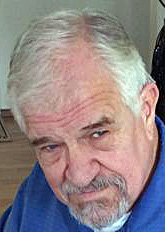
I’ve wanted to be on a jury since the first time I saw Perry Mason on TV in 1957. One of the great disappointments of my adult life is that I’ve never been called for jury duty. People all around me would be called, would complain, and then would immediately start figuring ways to get out of it.
It became clear to me that it was pretty easy to avoid jury duty. Often people would brag about how cleverly they had presented their circumstances in such a way as to convince the judge that they were unable to serve. Few of them went so far as to admit they had lied.
Once in 1974 I received a notice to appear for jury duty, but the notification came from a county I had moved out of, and I was no longer eligible. I considered letting the court think I still lived in their county, just so I could be on a jury, but then considered such an action would be just as dishonest as lying to get out of it.
So decades later it was with a good deal of excitement that I appeared at the Clackamas County Courthouse in Oregon City, having eagerly answered my second call to jury duty. There was even the thrilling prospect, against all odds, of being selected for the Grand Jury, a procedure that takes place on the first Monday of each month.
After a really competent and thorough orientation presentation by the jury coordinator, we were led into the courtroom where Judge Selander asked for a show of hands among the jury panel of those who believed for one reason or another they should be excused from serving on the Grand Jury five days a week for the month of March.
Three-quarters of the panel raised their hands. Each one had to explain why they could not serve. Most explained that they could not take that much time off from work, either because they could not afford the loss of income, or because their jobs were so important they could not be spared by their employers.
Some said they had issues with child care. Even chronic illness became an obstacle. It soon became apparent to me that if I did not want to serve, it would be an easy matter to tell a convincing story, one that was even technically true.
And then I remembered a famous essay by Thomas Paine, that rabble-rousing propagandist for the American Revolution, the one who wrote Common Sense, and helped inspire America’s fight for freedom against the rule of Great Britain.
He is perhaps best known for a pamphlet written in December, 1776, called The Crisis. It begins with these memorable words: “These are the times that try men’s souls: The summer soldier and the sunshine patriot will, in this crisis, shrink from the service of his country; but he that stands it Now, deserves the love and thanks of man and woman.
Tyranny, like hell, is not easily conquered; yet we have this consolation with us, that the harder the conflict the more glorious the triumph.”
And I thought, “If I do my civic duty only when it’s convenient, or exciting, or particularly threatening, then all this much-vaunted liberty and independence—our democratic way of life—isn’t very important to me.” And I put my hand down and waited to see whether my number would be called.
Only 15 of us were left, out of the 40 who walked into that courtroom. Judge Selander announced, “Now my bailiff will use a very high-tech method of selecting eight of you for the Grand Jury. Bailiff, will you please shuffle the cards.”
The bailiff did just that, and very thoroughly, then picked the top eight and called out eight numbers. Mine was the seventh, and as I took my seat, my attitude was transformed. No longer was I an eager schoolboy, looking forward to a new thrilling experience—or an unwilling laborer, reluctantly entering a season of involuntary servitude.
I entered into a nearly spiritual outlook that grew over the next 30 days to a whole new concept of what it meant to be an American. In this particular time in the history of our country and its relation to the world, I needed that.
Next month: Lessons I learned while serving on the Grand Jury.
No Comments
Leave a comment Cancel